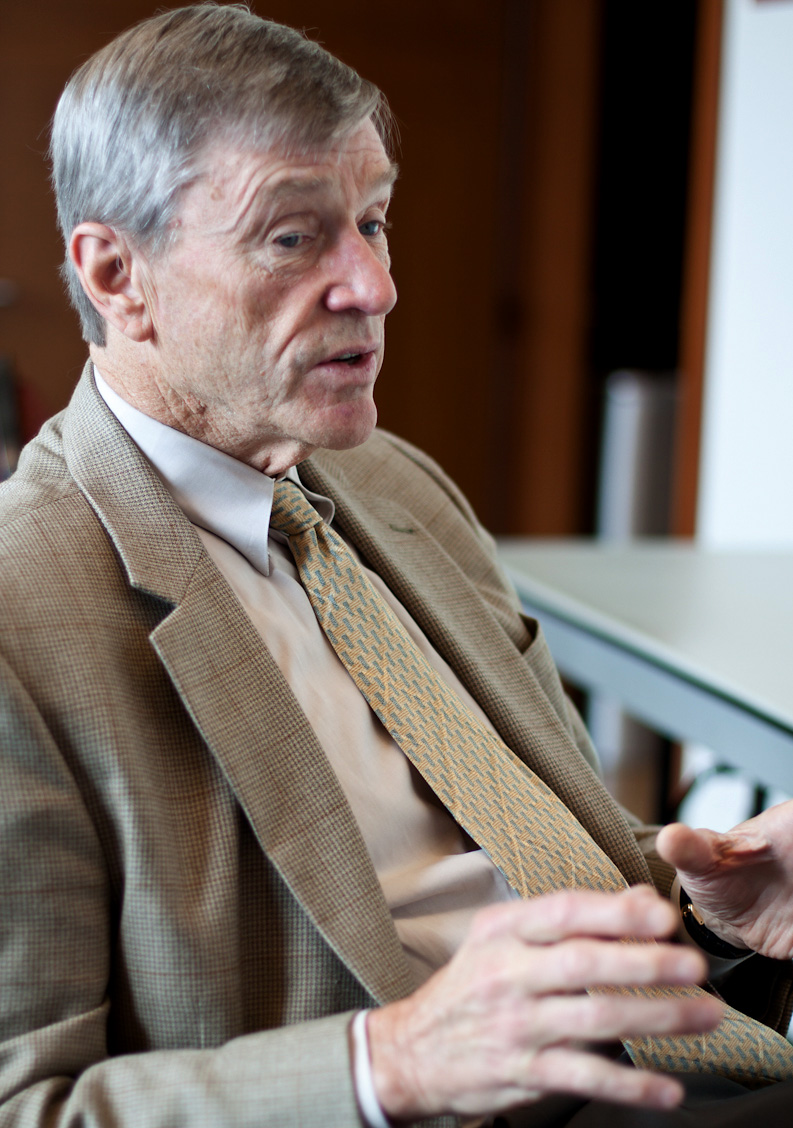UC Provost Lawrence Pitts announces his retirement after a long career preserving academic quality

UC Provost Lawrence Pitts recently announced that he will retire in Feburary. He became the UC’s top academic official in 2009.
By James Barragan
Sept. 16, 2011 3:25 p.m.
Two years into his term as the University of California Provost, Lawrence Pitts announced he will be retiring in February.
Pitts became the UC Provost, the system’s top academic executive, in 2009.
At the time, the university was an easy place to be ““ the state was helping and research was being funded, Pitts said. During his term, he’s seen the university go through budget cuts and tuition hikes.
“(The university) is in sort of a scary place right now,” Pitts said. “The university and campuses have managed a difficult situation extremely well. Quality of education is still great, time to graduation is actually getting shorter, but you can start to see some cracks.”
The growing size of classes and the increased difficulty for students to get into those classes is concerning, Pitts said. If those trends continue, the number of classes will go down further, the university’s ability to retain faculty will be jeopardized and there will be increased difficulty in recruiting the most competitive graduate students to the UC.
Students need to feel secure that the place where they study will be stable for the next five years and, at the moment, the university cannot give that security, Pitts said.
Multiyear budget planning is one of the solutions to that problem because the university functions on long-term investments, Pitts said.
“(The university) can achieve things in three- to four-year timelines that you can’t achieve in one-year timelines,” Pitts said. “You can’t recruit faculty with a one-year timeline.”
A loss, or a perceived loss, of quality in a UC education is the biggest danger to the university, even bigger than tuition increases, he added.
“We need to come up with a plan that says, “˜If we’re committed to quality, this is how much we need to have students pay,’ and then be given an equation,” Pitts said. “It’s a terrible equation, but it’s what we have to do.”
He added that a loss of quality would deter top faculty members and graduate students from coming to the UC.
Pitts said he is hoping for a commitment of funding from the state, but that the university should not be dependent on that and should have more control over its future.
Over the last couple of years, Pitts has worked hard to find budget solutions to reduce the amount of money spent by the UC Office of the President and to allocate that money to campuses, said Daniel Simmons, professor of law at UC Davis.
Simmons, who worked with Pitts during his time on the UC Academic Senate in the 1990s, said his colleague has also worked to find alternative sources of revenue for the university.
During his two-year term, Pitts has focused on maintaining multicampus research of a competitive nature. He was also involved in reviewing academic programs for quality and cutting those that were least productive.
Robert Anderson, professor of economics and mathematics and chair of the UC Academic Senate, said Pitts was involved in developing and improving courses and education policy while a member of the academic senate. The senate is the key defender of academic quality at the university, and the provost is a key partner in that, a role that Pitts played well, Anderson said.
As provost, Pitts worked on an initiative to increase humanities research at the university.
He also advocated for holistic admissions in the system. At the end of his term as provost, all but three campuses in the system now use holistic admissions, and two of those campuses are already very diverse without it, Pitts added.
“In every direction that comes to mind, we’re trying to get the best quality possible for students and for faculty,” Pitts said.
While the university faces difficult times ahead, Pitts said the UC must figure out how to use its resources to keep quality and be as inclusive as in the past.
“The University of California is not going away. You can change the character, you can harm it, but it’s not going away,” Pitts said.
Known as a defender of the academic quality at the UC, Pitts began his career in the system as a faculty member at UC San Francisco in 1975. A professor of neurosurgery, Pitts became involved in the UC Academic Senate in 1992 when he was appointed to the UCSF Welfare Faculty Committee. He became chairman of the Senate in 2003-2004.

